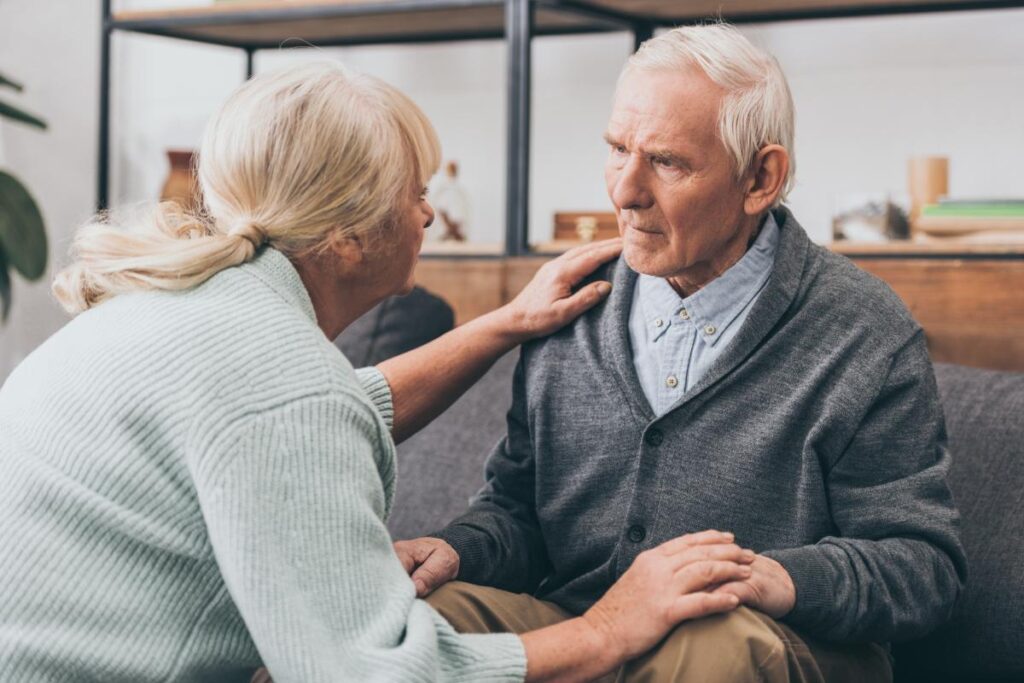If you are assisting a person with dementia, there are several things that you can do to make life for them and yourself less stressful and more enjoyable. Dementia is a treatable yet progressive disease. Seniors with dementia who stay mentally active can lessen the severity of their symptoms and potentially increase memory retention.
At Parkway Place, our memory care services support senior adults who are living with all types of dementia. Residents stay in private suites that they can decorate to their liking so it feels more like home. Our memory care services include 24/7 monitoring, therapeutic services, medication management, and other necessary medical or religious services. If you would like more information about memory care for dementia, connect with our knowledgeable team today by calling 281.305.1846.
Understanding the Different Types of Dementia
Dementia is a blanket term that describes several different types of dementia. It is a disease that affects a person’s ability to recall memories, think normally, or make rational decisions. It can also cause poor coordination and a lack of motor control that can make normal life very difficult.
Dementia typically affects men and women over the age of 65, with women having a higher risk of developing dementia than men. While there are no medical cures for dementia, there are several types of therapies and mental activities that can slow the progress of this disease.
The Five Main Types of Dementia:
- Alzheimer’s Disease – This is the most common of all types of dementia and impacts 6.7 million seniors. Symptoms can include short-term memory loss, changes in behavior, and forgetting how to do everyday tasks like getting dressed or driving.
- Vascular dementia – This type of dementia is characterized by damage to the blood vessels in the brain. Common causes of vascular dementia include high blood pressure, diabetes, obesity, and smoking.
- Lewy body dementia – A person diagnosed with Lewy body dementia will develop protein deposits in nerve cells in the brain. It can affect the way seniors move and think. Other symptoms include hallucinations, tremors, and a lack of motor control.
- Frontotemporal dementia – This type of dementia affects around 10% of seniors and is caused by protein buildup in nerve cells in the frontal and temporal lobes. Actor Bruce Willis was diagnosed with frontotemporal dementia, and his family recently announced that he is no longer able to communicate.
- Mixed dementia – In some cases, people can develop multiple types of dementia over the years. A common type of mixed dementia includes Alzheimer’s disease and vascular dementia. Studies show that one in ten seniors is diagnosed with more than one type of dementia.
Parkway Place is a full-service senior living community that supports senior adults who are living with dementia. We understand the difficulties in caring for someone with memory loss. Our programs can help slow the progression of the disease and may return some lost function.
Assisting a Person with Dementia
Caring for someone with memory loss can be a very rewarding and challenging experience. If you are a professional caregiver or a family member caring for your parents, here are some tips on assisting a person with dementia:
- Have set routines – Try to keep daily activities like meal times, exercising, and visiting friends at the same time each day and week.
- Engaging conversations – Talk with them several times a day about current events, past experiences, and favorite topics of theirs. Try to ask open-ended questions to keep the conversation going as long as possible.
- Keep a daily calendar – Go over future appointments and social events with them and make sure they write them down online or on a printable calendar.
- Offer support – Assist them with daily tasks. Be sure to let them do as much as possible on their own so they stay as active as possible and maintain a sense of independence.
- Home safety – Go through their home to make sure there are no tripping hazards or other potential dangers. You also want to check that the home can accommodate medical devices like walkers, shower and bath chairs, and wheelchairs.
If symptoms require routine physical, occupational, or speech therapy, the best way to assist them is to enroll in a memory care program.
Who Makes the Decisions for a Person With Dementia?
Just because a person has dementia does not mean they can’t make any important decisions for themselves. An important step to take when your parent or elderly loved one is diagnosed with dementia is to set up a power of attorney. This person can be a family member, close friend, social worker, doctor, or public conservator.
Find Effective Memory Care for Dementia at Parkway Place
Parkway Place provides compassionate memory care services for seniors with Alzheimer’s disease, frontotemporal dementia, or other types of dementia. Our community features private suites in a secure location with 24/7 support from professional nursing, therapeutic, and medical staff.
If you would like more information on assisting a person with dementia, send us a message online or call 281.305.1846 today to start a conversation about your parent’s future well-being.

